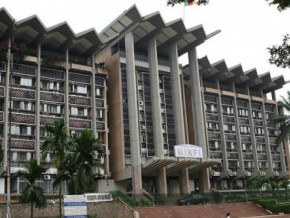
Cameron bans export of 76 log species to boost local processing

(Business in Cameroon) - Cameroon's Minister of Forests, Jules Doret Ndongo, signed an order last April 4 banning the export of 76 timber species in their raw form. The decision aligns with the conclusions taken during the recent ministerial council meetings of the Economic Community of Central African States held in Bangui on February 23, 2024. Its implementation is set to commence on January 1, 2028.
This initiative encourages member countries to gradually start enforcing the ban from January 1, 2025, to ensure a smooth transition. Leading by example, Cameroon has taken proactive steps by banning the export of 76 timber species eight months in advance, with intentions to expand this prohibition in the future. The Cameroonian government is ramping up its support for the secondary processing of timber, marking a significant shift from the export of raw and partially processed timber towards enhancing local manufacturing. To discourage the exportation of unprocessed and semi-processed timber, the government has steadily increased export duties over the last seven years. Between 2017 and 2023, the export tax on raw timber surged from 17.5% to 60%, an overall increase of 343%. The fiscal legislation for 2024 further escalated this duty to 75% of the timber's Free On Board (FOB) value. The duty on partially processed wood also experienced a substantial increase of 165% from 2016 to 2023, underscoring the government's dedication to nurturing the domestic timber industry.
This aggressive taxation strategy has proven effective, significantly diminishing the share of raw timber in Cameroon's international timber exports. According to 2022 statistics from the National Institute of Statistics (INS), only 746 cubic meters of raw timber were exported, from a total of 1.7 million cubic meters. This figure represents a 22% reduction from the 958.3 cubic meters exported in 2021.
However, the reduction in raw timber exports has implications for Cameroon's export revenues. This potential impact prompted CEMAC to defer the implementation of the timber export ban from its initial start date in 2022 to 2028, after an interim postponement to 2023. CEMAC's analysis indicates that the ban might lead to an approximate annual revenue shortfall of CFA80 billion for Cameroon. Despite these concerns, supporters of the ban believe the local processing of timber will bring significant economic advantages, including increased tax revenue, job creation, and added value. These benefits, bolstered by tax and duty exemptions for relevant machinery, are expected to gradually compensate for the anticipated revenue losses.
Mags frontpage
- Most read 7 days
- shared 1 month
- read 1 month






























